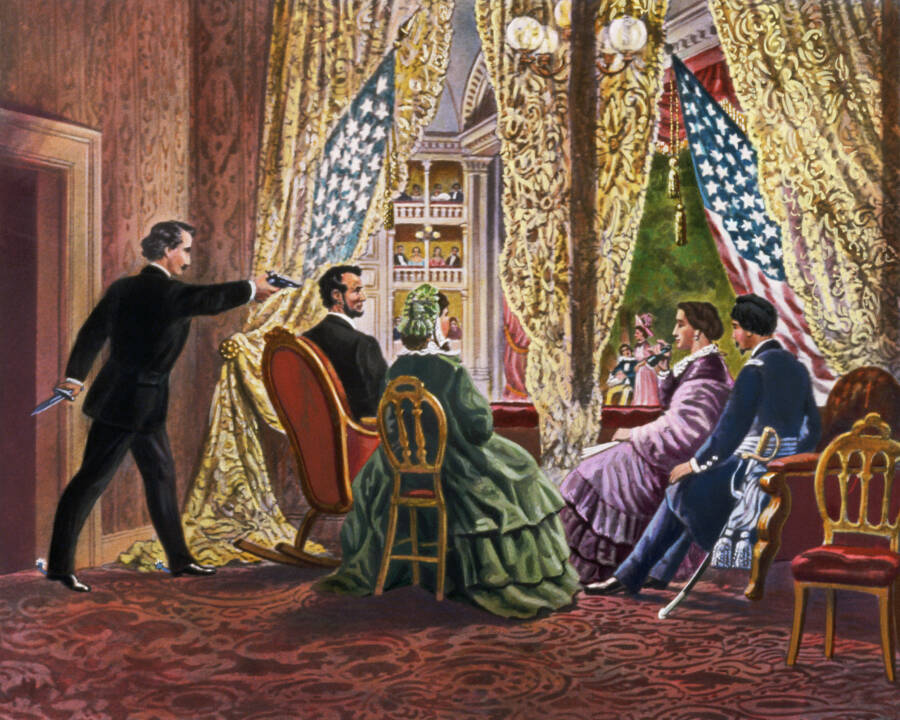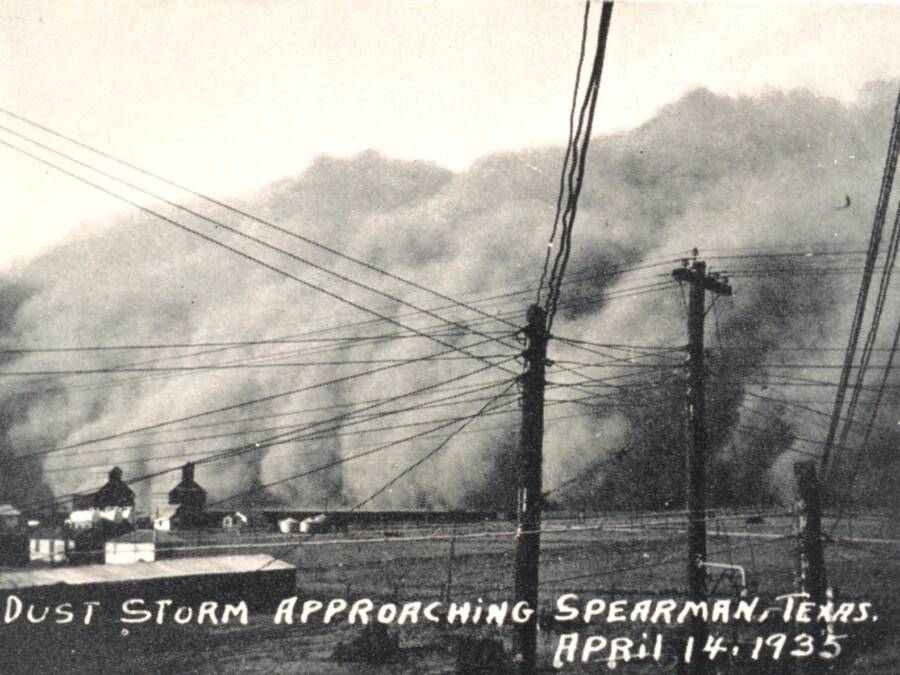What happened on this day in history: Abraham Lincoln is shot in Ford's Theatre, the RMS Titanic hits an iceberg in the North Atlantic, and more.
1818: Webster’s American Dictionary Is First Printed
The American Dictionary of the English Language is printed by Noah Webster. A Yale-educated lawyer fascinated by language, Webster spent two decades putting the dictionary together with a special emphasis on American words. His dictionary helped inform American spelling (versus British) though some spelling that Webster chose, like tung instead of tongue, never caught on.
1865: Abraham Lincoln Is Shot By John Wilkes Booth

Bettmann/Getty ImagesA depiction of President Abraham Lincoln’s assassination by John Wilkes Booth.
President Abraham Lincoln is shot by John Wilkes Booth at Ford’s Theatre in Washington D.C. Though the president survived the initial shot, he died the next day at 7:22 AM, elevating his vice president, Andrew Johnson, to the presidency. Booth, after a frantic manhunt, was killed on April 26.
1910: William Howard Taft Throws Out The Ceremonial First Pitch
William Howard Taft throws out the ceremonial first pitch at a Major League Baseball game between the Washington Senators and the Philadelphia Athletics, establishing a presidential tradition that endures to this day.
1912: The RMS Titanic Hits An Iceberg
Just four days after launching on its maiden voyage, the RMS Titanic hits an iceberg in the North Atlantic Ocean at 11:40 PM about 400 miles off the coast of Newfoundland. After two hours and 40 minutes, the ship sank into the frigid ocean. Roughly 1,500 perished in the infamous sinking, including 800 passengers and nearly 700 crew members.
Listen above to the History Uncovered podcast, episode 65: The Titanic, part 2: ‘Iceberg, Right Ahead!’, also available on Apple and Spotify.
1935: The ‘Black Sunday’ Dust Bowl Storm Takes Place

National Weather ServiceA photograph of the dust storm approaching Spearman, Texas.
The “Black Sunday” Dust Bowl storm sweeps across the Central Plains. Caused by drought and years of aggressive farming which had removed grasslands that once covered the topsoil, the “Black Sunday” storm was not the only dust storm that ravaged the Central Plains in the 1930s, but it was one of the most severe. Winds reached up to 60 miles per hour and the thick dust in the air meant that people couldn’t see more than a few inches.
2014: Boko Haram Kidnaps 275 Girls From A Boarding School
Boko Haram, an Islamist terrorist group in Nigeria, kidnaps 275 girls from their private school in Chibok, Nigeria. Boko Haram’s main mission is to make Nigeria a Muslim state by installing an Islamic leader. The group is responsible for thousands of deaths, primarily in Nigeria’s Borno, Yobe, and Adamawa states. In 2014, the group entered the Government Girls Secondary School and took 275 girls hostage. They forced the girls into trucks and took them to Boko Haram camps. The event sparked the #BringBackOurGirls movement. Over 100 of the girls remain missing today.



